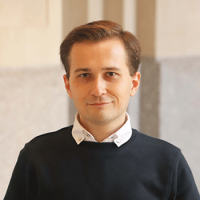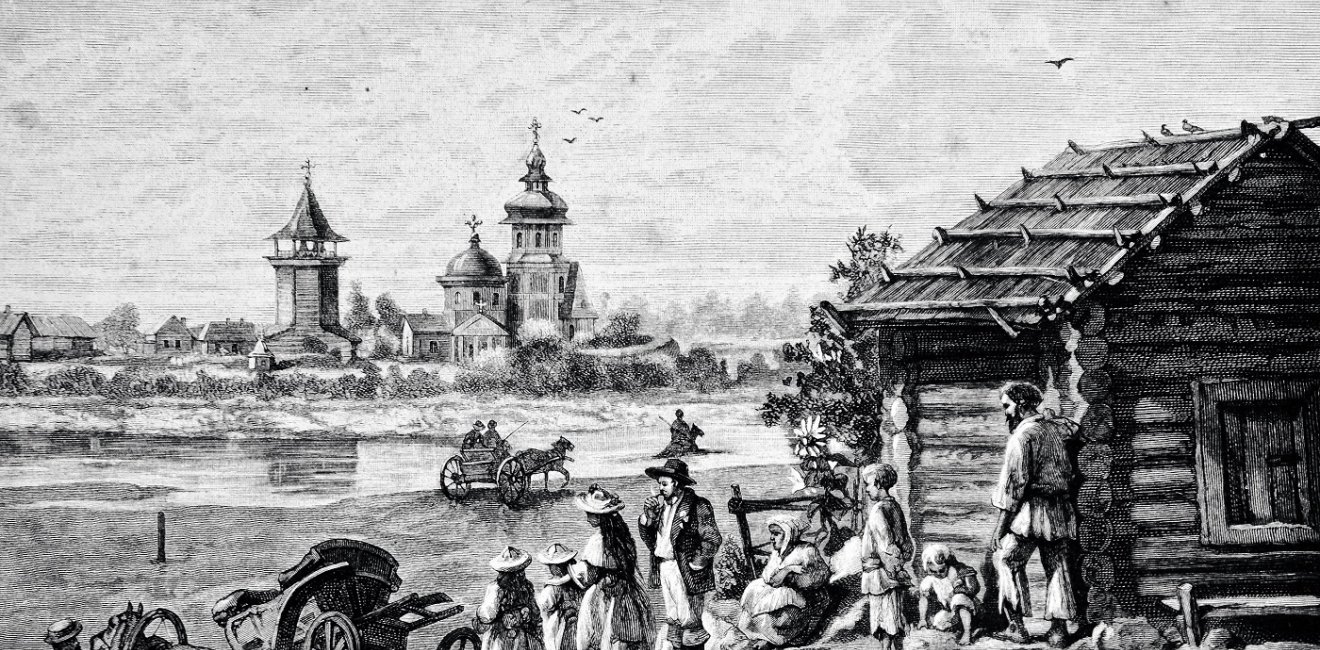
A blog of the Kennan Institute
The colonial nature of the Russian state has been pointed to as one of the causes of Russia’s war in Ukraine. A vague, borderless notion of Russian identity prevents Russia from transforming into a nation-state and lawfully coexisting with its neighbors, so contemporary political thinking goes.
When decolonizing Russia is mentioned, the subject is usually non-Russian ethnic regions. However, ethnic Russians make up around 80 percent of the population. Yet they are not a homogeneous group, and delving into history may reveal some nonimperial and nonauthoritarian foundations of their identity. The history of my own people, the Pomors, a subethnic group of Russians, offers perspective and suggests that Pomoriye has lessons in democratization to offer Russia.
Pomoriye and the Pomor Culture
The Pomors are an ethnocultural community residing in Russia’s North-West, where the rugged shores of the White and Barents Seas frame their unique way of life. As a distinct group, the Pomors have forged their own traditions, developed their own folklore, and created their own symbolic heritage, all of which together distinguishes them within the diverse tapestry of Russia’s ethnic communities.
What sets the Pomors apart is not only their geographic location but also their historical experience. Unlike many other Russians, they remained largely untouched by the serfdom system and the Mongol-Tatar yoke, which shaped the history and culture of much of the rest of the country. Their primary activities were fishing and trade with Norway and Britain.
Pomoriye has seen its rich history and enduring lifeway tarnished by Soviet-era associations. Bolshevist social engineering disrupted the Pomor way of life and made this region the birthplace of the gulag, exemplified by the infamous Solovki prison camp. Environmental pollution and nuclear testing in the region, the presence of the Plesetsk cosmodrome, a nuclear submarine plant in Severodvinsk, and accidents involving nuclear missile launches in the White Sea have further added to the complexity of Pomoriye’s history.
Not a “Russian North”
Pomoriye, often celebrated as the “reserve of genuine Russian culture,” has a complex history of cultural appropriation and assimilation. Russian folklorists, ethnographers, and anthropologists have romanticized this region, which continued to follow pre-imperial culture and traditions. In their quest to forge a uniform Russian identity more than a century ago, Russian social scientists sought to craft an experience that “central” Russia never truly had.
One of the consequences of this romanticization is the propagation of the term “Russian North.” It tends to overshadow the unique experience of the people inhabiting the region, reducing it to a component of an imperialist narrative serving larger Russian objectives.
But Pomor culture is multifaceted, composed of various layers—Pomor, Soviet, contemporary Russian, and, for some, the influence of the internet culture. Pomor culture is irreducible to those aspects most easily romanticized, such as the northern white nights, folkloric elements, its easily recognizable wooden architecture, Lomonosov, and a maritime heritage. Eliding the challenges less easily romanticized blurs the local identity and detracts from Pomors’ attempts to achieve recognition as an indigenous people, and thereby gain some funding from the federal government, while continuing to juggle a need for autonomy.
Pomors’ Struggle for Recognition of Autonomy
One of the most remarkable aspects of Pomor culture is the language, known as Pomorska govorya. It evolved from Medieval Novgorodian dialects and local Finnish influences, resulting in a unique linguistic heritage. This has proved to be a double-edged sword.
In the early 1990s, the Pomors made an ambitious attempt to create a Pomor Republic that would be based in the Arkhangelsk oblast of Russia. This endeavor failed, but showcased their desire to preserve and assert their cultural and political identity, while signaling aspirations for self-determination. Today however, Russian propagandists equate manifestations of Pomor identity with attempts at creating a “New Ukraine” in Russia’s northern regions—and the authorities have used the compilation of a Pomor language dictionary as a pretext for repression.
The Pomors’ experience of democratic self-governance and their deep-seated identity, tied to the northern landscapes, have led them to political activism. As an example, the most successful protest in Russia before the war was against the construction of a massive landfill, essentially Moscow city’s waste dump, near the railway station of Shies in Arkhangelsk oblast. Under the rallying slogan “The Pomor land is not a dump,” local residents spent more than two years protesting in the streets and defending their forests. Ultimately, Moscow abandoned the project.
Pomoriye’s independent streak shows up in other ways. Pomoriye and its environs are often regarded as a depressed rural backwater in Russia. Even based on official (and questionable) election results, however, the Arkhangelsk region has consistently recorded some of the lowest levels of support for Putin’s United Russia, joining such bastions of liberal intelligentsia as Moscow and St. Petersburg.
Pomoriye’s Connections to European Democracies
Though Pomoriye is often touted by the romanticizers for its quintessential “Russianness,” the region has a distinctive identity with deep connections to European democracies and their histories.
When exchanges with the West were resumed after the fall of the Iron Curtain, numerous educational and exchange programs appeared. European and American performers annually participated in the Arkhangelsk International Street Theater Festival. Regular flights connected Murmansk and Arkhangelsk to Norway, Finland, and Sweden. The Scandinavian countries opened consulates in these cities, and the Barents region became one of the most significant projects for regional cross-border cooperation.
In Norway, a local Pomor community emerged, and a Norwegian politician, Thorvald Stoltenberg, the father of the current NATO secretary-general, famously proclaimed “I am a Pomor.”
Pomoriye has also been able to resist the current Russian propaganda leveraging homophobia as a tool for promoting “traditional Russian values.” Social science researchers who have investigated the history of queer culture in Pomorye have found that homophobia wasn’t as deeply rooted in the “reserve of genuine Russian culture” as Moscow might like to broadcast, and there is ongoing work to reclaim Pomor queer culture. Presently, they continue their efforts in Norway, also participating in the Barents Pride, an annual Norwegian Russian event in Kirkenes, close to the Russian border.
Grassroots Democratization of Russia
Pomoriye, often regarded as a quintessential manifestation of Russianness, paradoxically holds a distinctive identity rooted in democratic European traditions, history, and experience. Pomoriye could thus serve as the crucible for initiating grassroots democratization in Russia. Its own history presents invaluable insights for reshaping the nation of Russia on a nonimperial, nonauthoritarian foundation. Fostering such initiatives and movements is pivotal to the pursuit of lasting peace, global freedom, and the advancement of democracy.
The opinions expressed in this article are those solely of the author and do not reflect the views of the Kennan Institute.
Author

International Political Analyst and Media Manager

Kennan Institute
The Kennan Institute is the premier US center for advanced research on Eurasia and the oldest and largest regional program at the Woodrow Wilson International Center for Scholars. The Kennan Institute is committed to improving American understanding of Russia, Ukraine, Central Asia, the South Caucasus, and the surrounding region through research and exchange. Read more

Explore More in The Russia File
Browse The Russia File
Chechnya as a Model of Modern Russia

Russia’s Indigenous Communities and the War in Ukraine

Gas and Power in a Changing US–Russia Relationship

